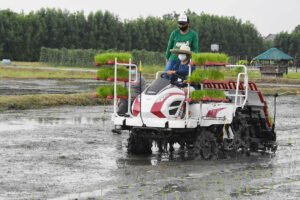By Adrian H. Halili, Reporter
THE PHILIPPINE Rice Research Institute (PhilRice) said it is seeking more funding from the Rice Competitiveness Enhancement Fund (RCEF) for seed to be distributed to farmers.
“We are also proposing to increase the seed volume so that more farmers can be served. We hope there will also be an increase (in funding),” PhilRice Director for RCEF Program Management Office Flordeliza H. Bordey, told BusinessWorld.
The RCEF is intended to modernize the rice industry and is funded by import tariffs generated as a result of Republic Act 11203, or the Rice Tariffication Law.
A Senator has proposed another six year extension to RCEF with an increased budget of P20 billion a year.
“We welcome that development, because we are (an) implementer of the program… what we have done through the program has really helped our farmers,” Ms. Bordey said.
The fund supports the supply of machinery, seed, and fertilizer, among others, to farmers. The rice tariffs support RCEF with P10 billion annually. The tariff allocations are set to expire in June.
The law, which took effect in 2019, allowed private traders to bring in rice shipments without restriction. At the time, they had to pay a 35% tariff on Southeast Asian grain.
PhilRice handles the distribution of certified inbred seed to farmers.
She added that the agency’s seed distribution will be little changed this year with RCEF funding of P3 billion.
She added that the Department of Agriculture’s National Rice Program has also allotted P700 million for seed distribution.
PhilRice’s inbred seed yielded an average of 4.36 metric tons (MT) per hectare last year, against 3.63 MT per hectare in 2022.
RCEF has set an aspirational target of five MT per hectare by 2025.
